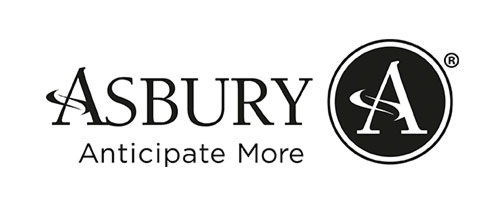Scientific research
All reports are FREE to ICAA Organizational and ICAA 100 members. Individual members need to upgrade to an Organizational and/or ICAA 100 membership to access reports.
Non-member can purchase reports by setting up a nonmember account, click on the Log-in button above to do so. Nonmembers can also access reports by purchasing an ICAA Organizational or ICAA 100 membership.
Access and utilize the ICAA library of scientific studies, reports and statistics to assist you with the development of your business case for wellness, program and community design and development, evidence-informed lifestyle choices and marketing strategies and approaches.

Tech Talk: Tech use surges among older adults
"In the span of a decade, adults 50-plus have evolved from basic internet and email users to fully engaged participants in a mobile, always-connected world." So begins AARP's latest report on tech trends among older adults. Active aging staff and management will gain insights into their current and future customers’ tech needs and preferences by reading this report.
moreTechnology

Blood flow restriction cuffs a fall risk for older adults
Wearing blood flow restriction (BFR) cuffs can change the way older people walk, potentially making them more unsteady during exercise, new research suggests. BFR training is gaining popularity globally as a way to boost strength during light exercise by placing inflated cuffs on the arms or legs to limit blood flow. By partially blocking blood going in and out of the limb, BFR creates a low-oxygen environment that makes the muscles work harder, even under lighter loads. Communities that offer the training should be aware of the study findings.
moreBalance and falls

Stress tied to worse surgery recovery among older adults
Even modest stress before surgery may influence how well older adults recover, according to a new study from Duke University School of Medicine, Durham, North Carolina. The study found that adults who carried more worries into the operating room faced higher risks of delirium, reported more uncontrolled pain, and spent additional days in the hospital — even if they did not view themselves as highly stressed. Active aging communities may want to educate residents about the risks and encourage those who will undergo surgery to identify strategies that can help them reduce stress.
moreEmotional wellness

Older adults depleting retirement savings too soon
Only one in five respondents (19.4%) to a Senior Citizens League survey considered themselves financially healthy, with an adequate income that could last through retirement. More than half (53.4%) worried their income won’t be enough to cover essentials or that rising inflation will drive up their spending and cause them to deplete their savings faster than expected (58.1%). A total of 57.6% have forgone at least one important medical product or service in the last 12 months due to cost.
moreAging

Healthspan/longevity among 10 fitness trends for 2026
The American Council on Exercise (ACE) has published a blog with expert insights into 10 fitness trends to look for in 2026. It can help inform active aging communities’ programming, now and in the future.
moreSleep

Stats: Fraud losses skyrocket to $2.4 billion among those 60+
The US Federal Trade Commission (FTC) recently issued its annual report to Congress on protecting older adults, which shows a big increase in the number of older adults reporting losses of over $100,000 to scams. The report details the FTC’s multipronged efforts to stop deceptive acts and practices that impact older adults through law enforcement actions, rulemaking, and consumer education campaigns and outreach. It also highlights data gathered through consumer reports on fraud targeting older adults. It's well worth a read and could serve as the foundation for community education projects.
more
































